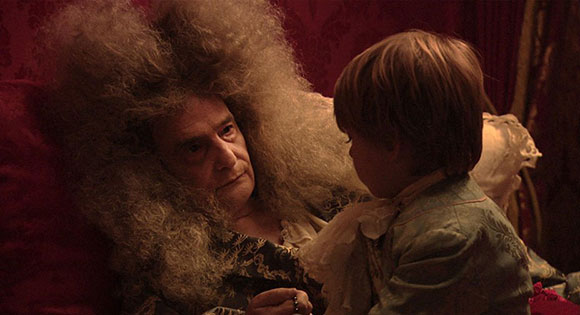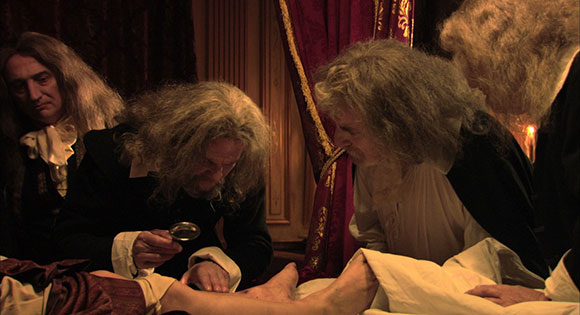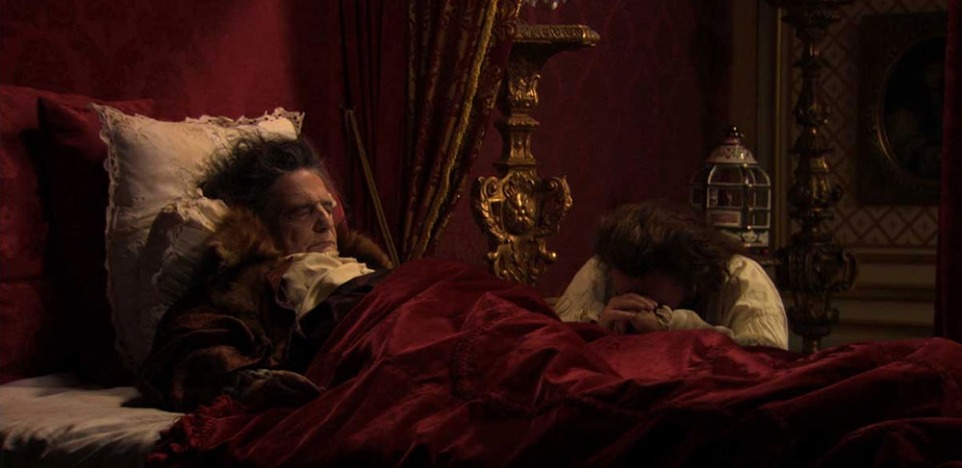"Life is pleasant. Death is peaceful. It's the transition that's troublesome."
— Isaac Asimov
Over the past 40 years of reviewing films, we have not found many people who look with eagerness and genuine enthusiasm for dramas about death and the great questions which accompany it. Perhaps for that reason, we welcome opportunities to see such films, knowing they will provide us with rich opportunities to delve into the essential mysteries of life, death, and the life beyond.
The Death of Louis XIV is a disquieting, sometimes boring, and often enlightening French drama about the famous monarch's final days. Director Albert Serra immerses us into this bedridden king's painful, confusing, lonely, and fearful transition to his death in 1715.

The Sun King (Jean-Pierre Léaud), as he was called, reigned for 72 years as a larger-than-life monarch who used his power to advance his own projects such as the gardens of Versailles. Most of the scenes in this meticulous and detailed drama take place in his death chamber. It vividly makes the point that even the egocentric Louis XIV, who believed that he ruled France by divine right, is forced like the poor peasants in his kingdom to square off against the decrepitude of the body and the onslaught of disease.
Attending to the ruler's every need and trying to stop the progression of gangrene in his leg is his personal physician Fagon (Patrick d'Assumçao). In desperation he calls in a crew of learned Sorbonne doctors and even allows a non-traditional healer from Marseilles to administer an supposedly life-saving elixir to the king. Fagon orchestrates the monarch's interactions with his adoring courtiers, his five-year-old successor, his beloved dogs, and the various cooks who try to get him to eat. In a flamboyant scene, Louis XIV dons a feathered hat and tips it to the adoring ladies of the court.

Director Serra draws out an entrancing performance from Jean-Pierre Léaud whose first lead role was in Francois Truffaut's The 400 Blows; he is on the screen for the entire movie. The screenplay by Serra and producer Thierry Lounas has fashioned vulnerable and anxious characters we care about and can identify with, including the king and his attending physician.
